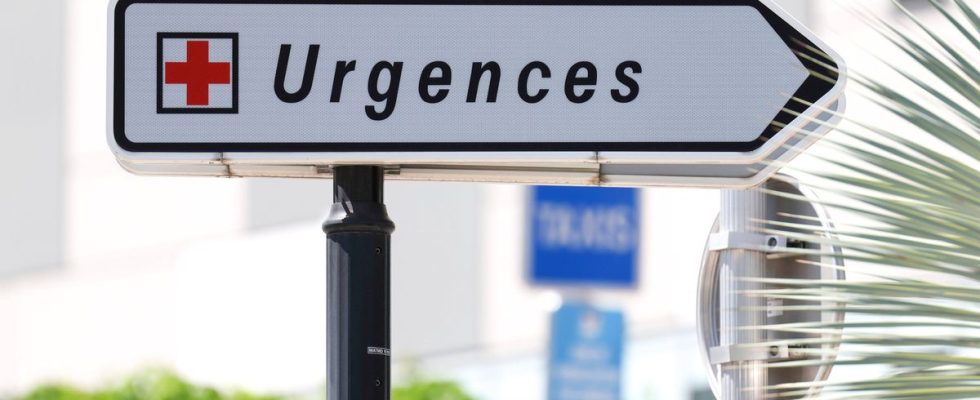Whether you are a vacationer in Saint-Tropez or a resident of Laval, it is better not to have a health problem after 6 p.m. this summer. Almost everywhere in France, many hospitals are increasing the occasional closures of their emergency services, especially at night, the fault of a lack of staff. If the state of the hospital has worried doctors and nurses for a long time, the current emergency crisis “is unheard of”, estimates with 20 minutes Patrick Pelloux, President of the Association of Emergency Physicians of France.
Why is the crisis so strong this summer? Can the closures extend beyond the start of the school year? What are the solutions to find accessible and efficient emergencies? 20 minutes make the point.
Why is there an ER crisis this summer?
In Maubeuge, emergencies should close the last three weekends of August. The Redon hospital, in Ille-et-Vilaine, applies a night closure of its service for the whole summer, and in Mayenne, you have to dial 15 before you can go to the emergencies of the three CHUs in the department. Ditto for the seven hospitals in La Manche.
“It’s unheard of,” denounces Patrick Pelloux. These closures are, for the president of the association of emergency physicians of France, the consequence of “the abandonment of the architecture of the public service”. “Instead of wondering why a service is not attractive, or why there is a lack of beds, we close,” he criticizes. “We put the company on hold in 2020 because there were not enough resources in the hospitals” to manage the Covid-19 crisis. “It did not serve as a lesson to them”, launches the emergency doctor.
The attractiveness of certain services has especially fallen with the ceiling on the compensation of temporary doctors, at 1,390 euros for 24-hour care, decided by the former Minister of Health François Braun. “It had to be framed, the system was perverse, some hospitals paid up to 5,000 euros” and created regional imbalances and a form of “social dumping”, underlines Patrick Pelloux. But this uniform ceiling does not offer “attractiveness for nights, on public holidays”, he points out, hence the decision of certain emergency doctors to no longer accept these guards.
Can the crisis last?
Traveling to Sarlat, in the Dordogne, where the maternity ward was closed last week, the new Minister of Health Aurélien Rousseau called for “to take the hit, and then little by little we go back up”. Easy to say for the emergencies of Vouziers (Ardennes), Vittel (Vosges) and Manosque (Alpes-de-Haute-Provence), officially demoted to the rank of “unscheduled care center” by day. “Emmanuel Macron’s promise to unclog emergencies by 2024 makes no sense,” tackles Patrick Pelloux.
For the moment, many hospitals are hiding behind an overload linked to tourist attendance, in Normandy as in Saint-Tropez, and points to the summer closure of many general practitioners’ offices. “Luckily, only the southern part is affected by heat waves, grinds Patrick Pelloux, if we had strong heat everywhere, we would be lost”. Because the government instruction to hold on and ask to call 15 first will not bring emergency workers back. “Since we are not changing policy, the crisis is only getting worse. It’s pathetic, ”regrets Patrick Pelloux.
What are the solutions to save emergencies?
On the government side, we are therefore betting heavily on regulation, with a transformation of 15 into a “care access service”. “It’s a total failure,” observes Patrick Pelloux. Uninformed about emergency hours, patients continue to go there and sometimes “are refused” when they “have had to change departments”. He also denounces an “uberization of medicine”, teleconsultation and the personal data linked to it must be reserved “for the attending physician, who knows the patients”.
“You have to examine the sick” anyway, says the emergency doctor. For him, “the only thing that will lower attendance is a major prevention and public health policy”, citing road safety as an example. Thus, the regulation of soft mobility and or better “prevention on health at work” could be levers to be activated, in addition to the question of the hospital budget.

